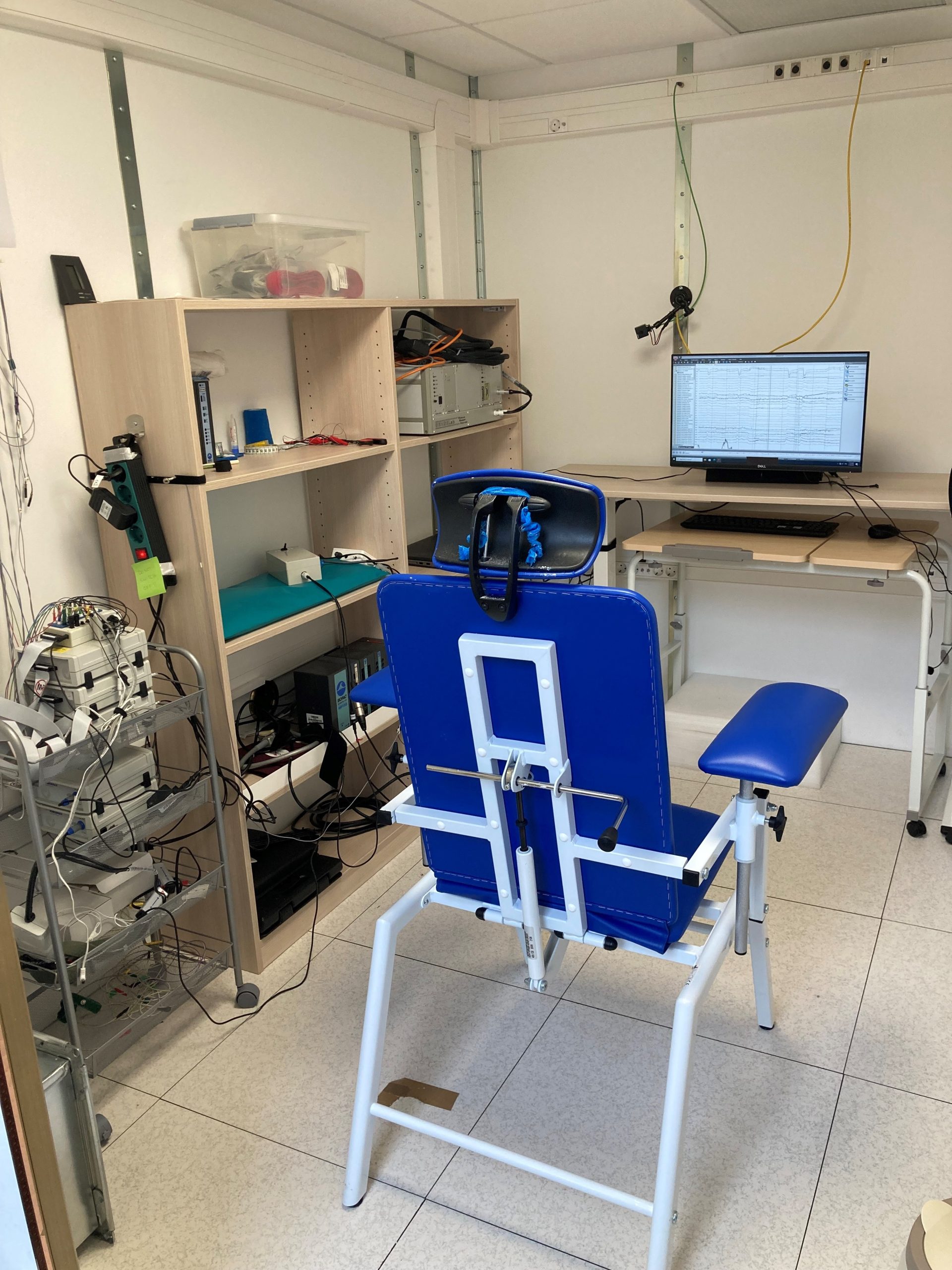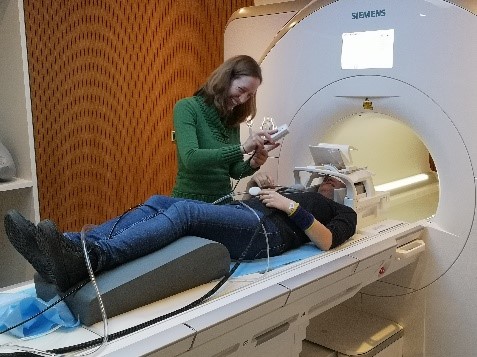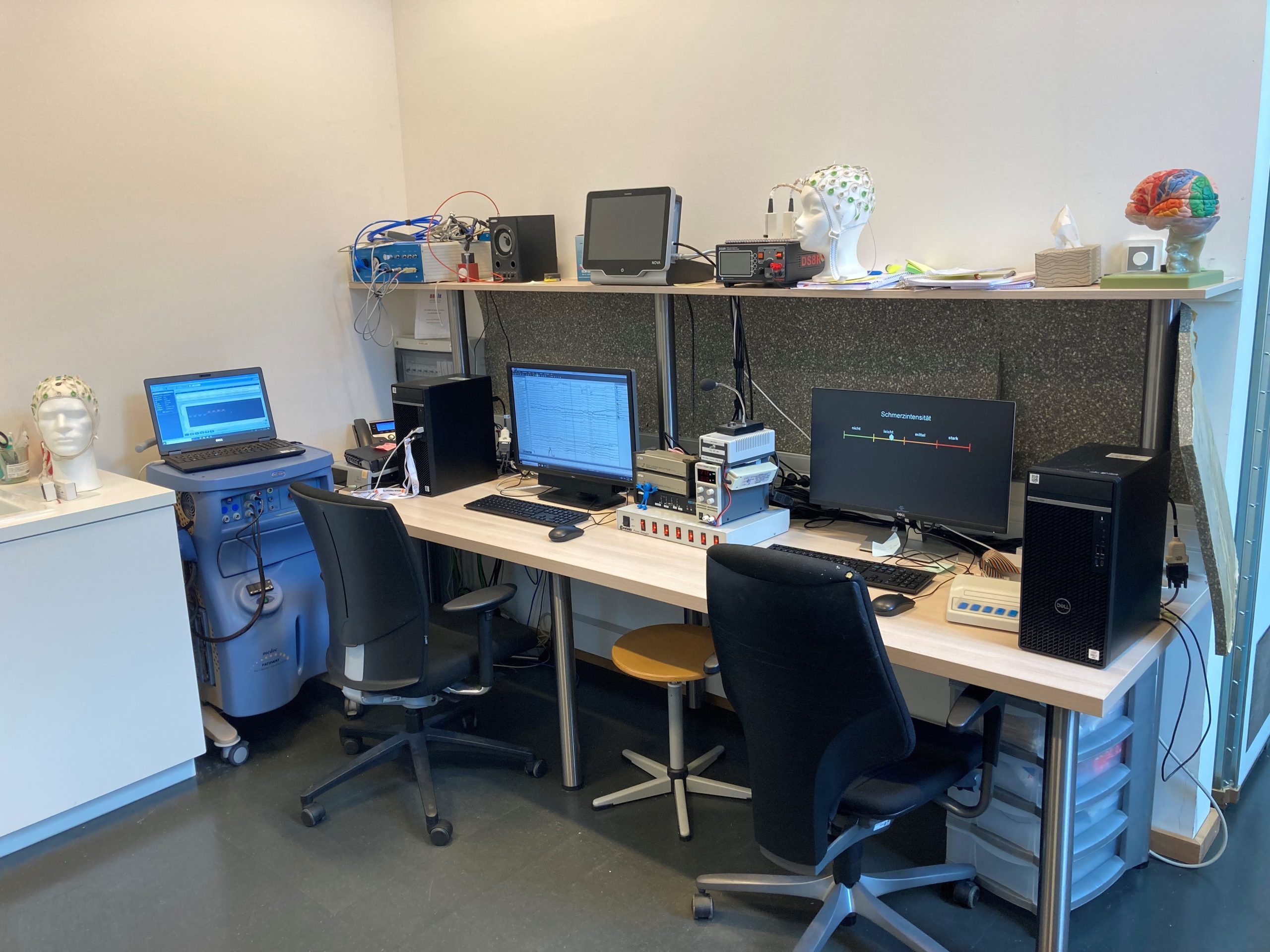Lab equipment

The P3Lab has a wide variety of devices for experimental pain induction, including electrical stimulators, mechanical stimulators (e.g., algometer, interdigital web-pincher, impact stimulator) and thermal stimulators (e.g., different types of contact thermodes). The lab is equipped with a cabin for electro-encephalography (EEG), and we have a set-up for recording electrocardiograms, blood pressure, respiration rate, muscle activity, and electrodermal activity.
Collaborations
The P3Lab has a longstanding collaboration with the medical imaging facility at the Hôpitaux Robert Schuman in Luxembourg city, to collect functional magnetic resonance images (fMRI). This allows us to study the activity of the brain during pain perception and modulation.
Furthermore, we work together with Prof. Dr. Frank Hertel at the Centre Hospitalier de Luxembourg (CHL), on a study involving spinal cord stimulation in chronic pain patients. This study is funded by the company Nevro Corp
And finally, we are involved in an interdisciplinary project with Dr. Andreas Husch and his Imaging AI research group at the Luxembourg Centre for Systems Biomedicine (LCSB). The project focuses on developing machine learning models to analyze large multi-modal pain datasets. This collaboration between computer scientists and neuroscientists is funded by the Institute for Advanced Studies (IAS)

